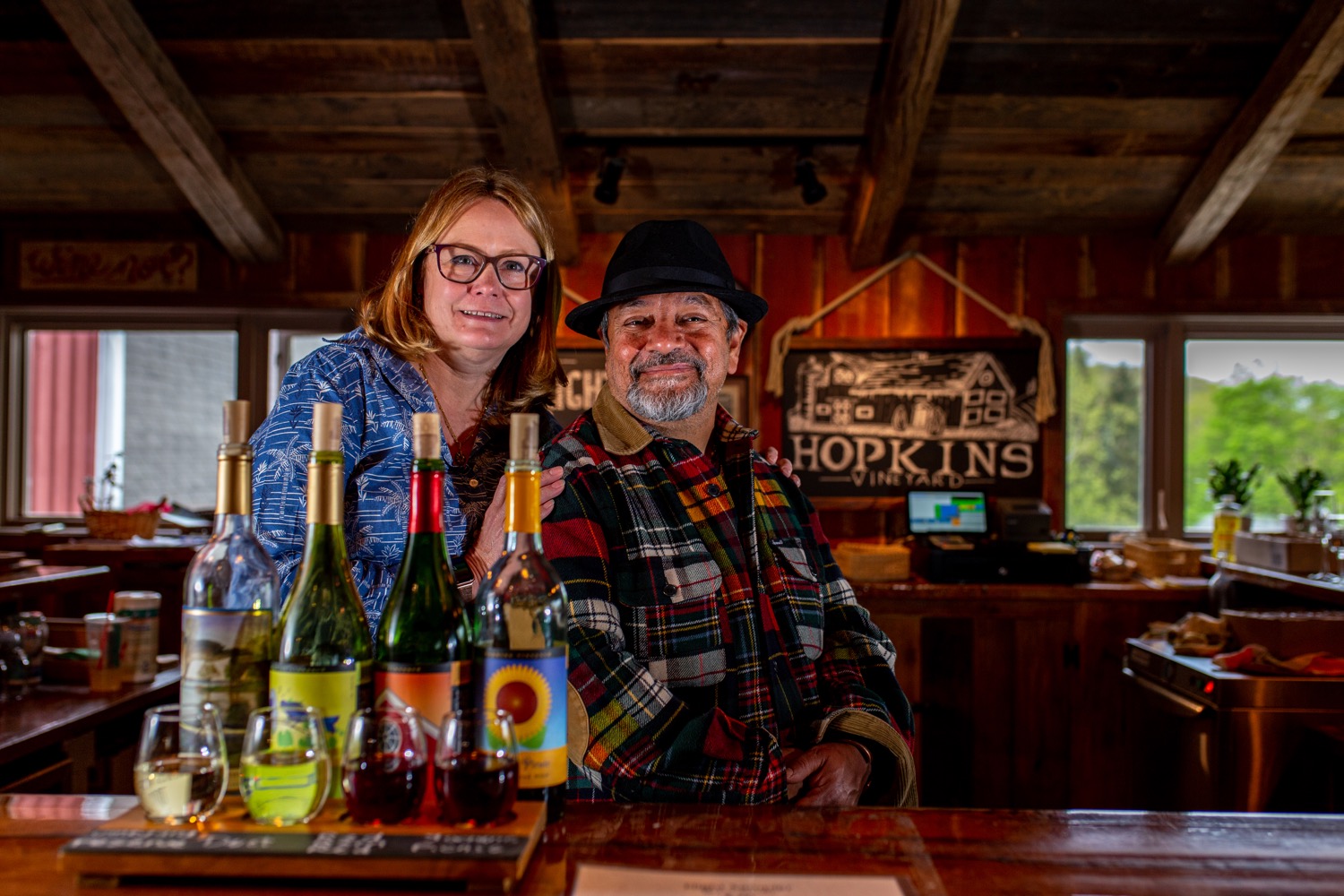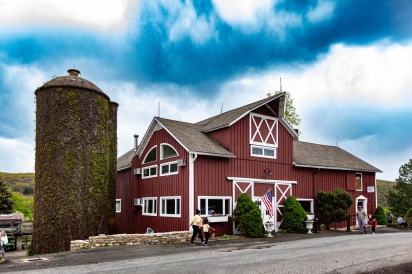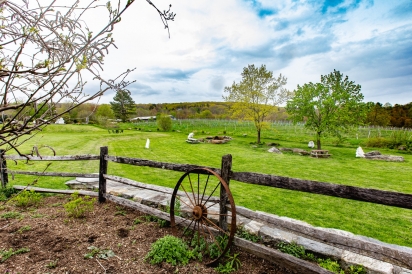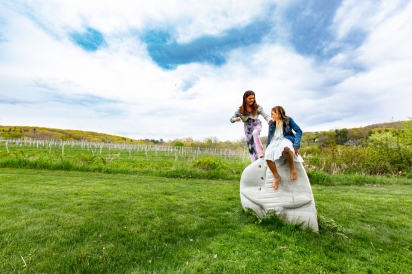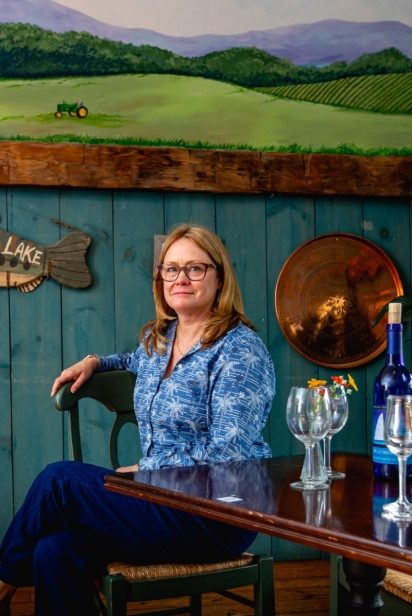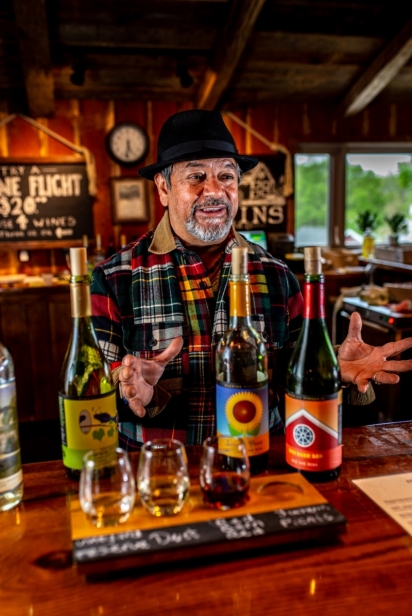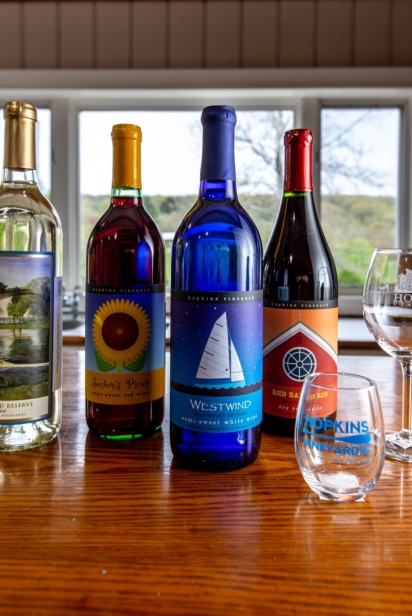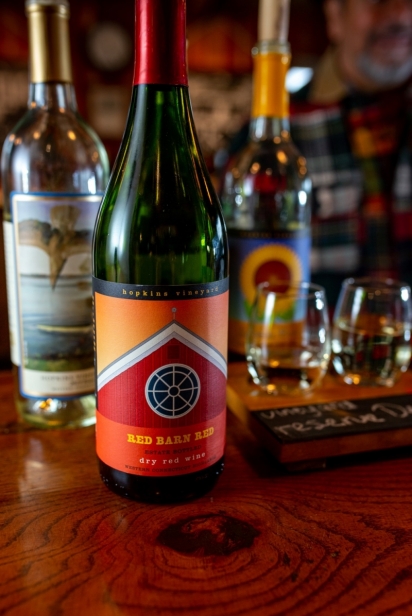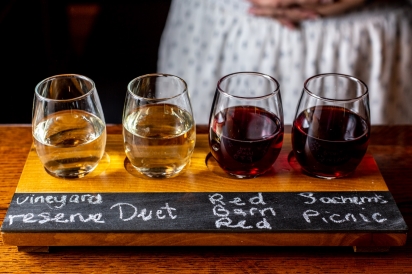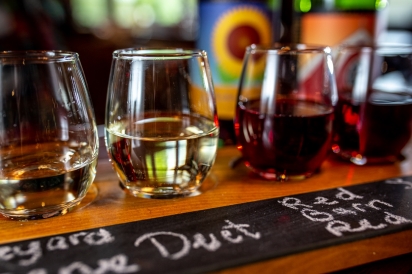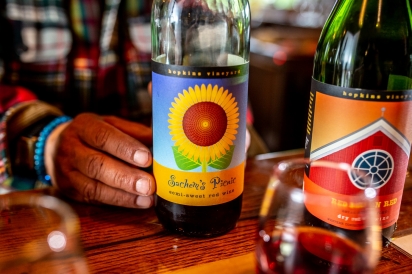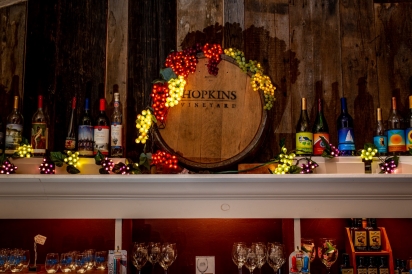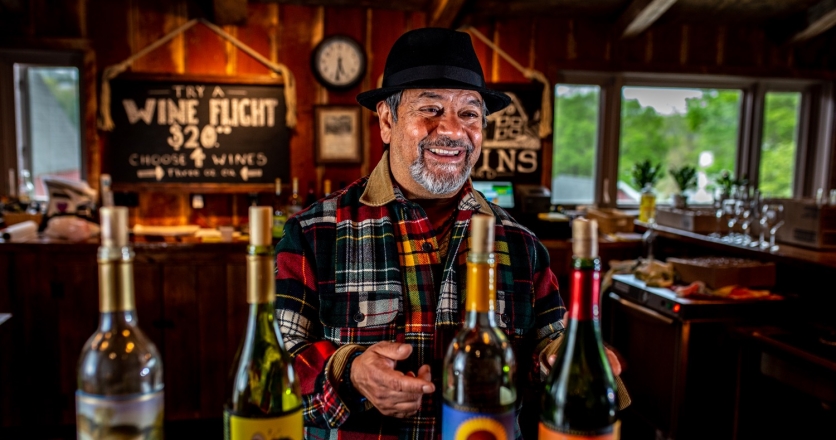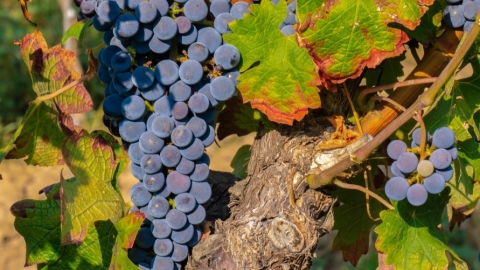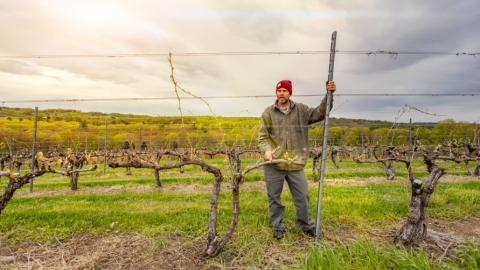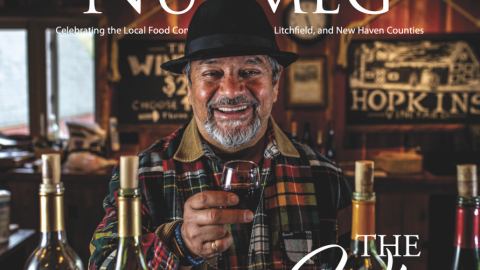Hopkins Vineyard
Connecticut is full of historic locations, but among even those, Hopkins Vineyard stands out. It is a nationally recognized Bicentennial Farm, owned and run by the same family since 1787, the same year the U.S. Constitution was drafted. It was purchased by Elijah Hopkins after his return from fighting in the Revolutionary War, who was himself a descendant of Stephen Hopkins, a passenger on the Mayflower.
Set on the rolling hillsides that overlook Lake Waramaug in New Preston, the vineyard shares the magnificent view with the nearby Hopkins Inn, and though the inn has been separately owned for over 100 years, the two entities co-exist happily as neighbors.
Hilary Hopkins Criollo, the vineyard’s president, walked us through her family’s history as we strolled the property on a gorgeous spring day. It was Mother’s Day and one of the first days the winery was open since the start of the pandemic — a milestone to celebrate. The grounds were bustling: people picnicked outside in tents, the gift shop and tasting rooms were occupied, a couple walked along the rows of vines in view on the hill, and young girls tumbled on the grass amidst the massive sculptures by Connecticut artist Timothy Mark that dot the property.
The Hopkins name is synonymous with Connecticut’s wine industry. In addition to being one of the oldest farms in the state (the family’s ties to the land date back over 230 years), the Hopkins family helped initiate the Connecticut Farm & Wine Act in 1978, legalizing the commercial production of wine on grape growing farms and giving structure to the state’s nascent industry. With the help of other local farmers, the act was established and wine officially became a state-recognized agricultural product for the region.
Hilary remembers her family first making wine as a hobby — dandelion wine, in fact — while the property operated primarily as a dairy farm, and before wine became the quintessential product of the Hopkins family. Her parents, William and Judith, started the vineyard and met their fair share of challenges: from doubt about whether grapes could really grow and survive in the region to whether a sustainable customer demand for Connecticut-grown wines would emerge. With the help and knowledge of Jim Baker, chief winemaker for Hopkins (now a thirty-year veteran of the vineyard), they discovered that grapes could, in fact, flourish here, and that Connecticut residents were happy to help consume the wine that followed.
Hilary’s family, including her husband, Jorge Criollo, and their five children, has made the vineyard a mecca for social gatherings and a picturesque setting for weddings and special occasions. The winery’s main building houses a wine bar and two tasting rooms, cozy settings that evoke an old-world charm, and for good reason. “We’re standing in what used to be the hay loft of the dairy barn,” Hilary says. It is just one of many transformations the farm has experienced over its long history. Looking through the upstairs window of the old barn (now the wine bar), the view of Lake Waramaug never gets old; idyllic and pastoral, it’s the same view that the property’s 19th-century stewards gazed out upon after a long day’s work.
Behind the barn, 30 acres of vineyard stretches out across the hillside, with grapes ripening in late summer and ready for harvest in the fall. Hopkins produces a selection of estate-grown and bottled single-varietal dry wines, including Cabernet Franc, Chardonnay, and Corot Noir (a recently developed red hybrid grape), as well as estate blends, such as their Lady Rosé (a local spring and summer favorite, comprised of Dornfelder, Lemberger, and Pinot Noir, featuring English painter John Collier’s Lady Godiva on the label), and their Duet (a blend of Chardonnay and Vidal Blanc). They also have a selection of semi-sweet wines, like the ruby red Sachem’s Picnic (sachems were paramount chiefs in northeastern Native American tribes) and their estate-grown Westwind (made with Cayuga White grapes), as well as two estate-grown sweet wines: the Night Owl (a dessert wine made from Vidal Blanc grapes) and a tremendously sweet and fruity ice wine made from their 2019 harvest. New to their lineup, Hopkins has produced 30 cases of 2019 Riesling for their Heritage Series, a line of wines that specifically honors the family land and its history.
Although estate-grown vintages dominate their wine list, Hopkins is no stranger to collaboration, as evidenced by their forays into producing distilled and fortified wines. They are currently working with Roxbury’s Mine Hill Distillery to create a sweet vermouth, and a recent collaboration with Litchfield Distillery resulted in the Elijah Hopkins 1787 Brandy, a three-year-old, barrel-aged vintage — and the vineyard’s first distilled wine — made using their own Vidal Blanc grapes. It is fitting that the development of their newest product uses its label to hearken back to the earliest days in Hopkins Vineyard’s legacy. History, it would seem, is a delightfully inextricable part of the Hopkins experience.
> Hopkins Vineyard: 25 Hopkins Rd., Warren; 860-868-7954


